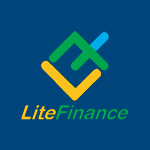LiteFinance issues warning on rising fraud attempts. Clients are urged to verify communication channels and prioritize official platforms for transactions.

In a recent forex broker news, LiteFinance has alerted its clients to the escalating incidents of fraud involving the unauthorized use of its trademark. Cybercriminals are reportedly creating fake groups, chats, and websites on social networks and messengers, posing a serious threat to unsuspecting users.
Forex broker LiteFinanceurges clients to exercise caution, particularly in verifying the sender's identity and scrutinizing domain names in links.
LiteFinance clients have been targeted with fake messages via Telegram and other messengers, attempting to deceive recipients into depositing funds using illegitimate payment details. The company emphasizes that clients should only top up trading accounts or withdraw funds through the official Client Profile using payment details specified in the FINANCE section.
This multi-asset broker outlines key indicators to identify legitimate communication, emphasizing that official support never initiates contact through social networks or messengers. They do not request the installation of remote access software, passwords, or sensitive payment details through unofficial channels.
To ensure client security, forex broker LiteFinance exclusively contacts clients through verified email addresses, designated phone numbers, and the official support team's internal communication channel on the online platform. The company's official contact information can be found in the Contacts section on the "Support" page of LiteFinance website.
Through this forex broker news, LiteFinance encourages clients to use the Live Chat feature for verification and emphasizes the importance of adhering to security rules to prevent broker scams and the disclosure of personal details to unauthorized third parties and fraudsters.
Last year, LiteFinance also sent a similar warning for clients to be more aware of fake groups, chats, messengers, and sites that impersonate the company's name.

 Earn up to 20% per Annum with LiteFinance
Earn up to 20% per Annum with LiteFinance Dedicated FREE FOREX VPS
Dedicated FREE FOREX VPS Free FOREX Virtual Private Server
Free FOREX Virtual Private Server MT4 Demo Contest, Get $500
MT4 Demo Contest, Get $500 Sign Up for an Account, Claim 60% Deposit Bonus
Sign Up for an Account, Claim 60% Deposit Bonus Free MT4/MT5 VPS 2024
Free MT4/MT5 VPS 2024 Send E-mail and Get Free Merchandise
Send E-mail and Get Free Merchandise

